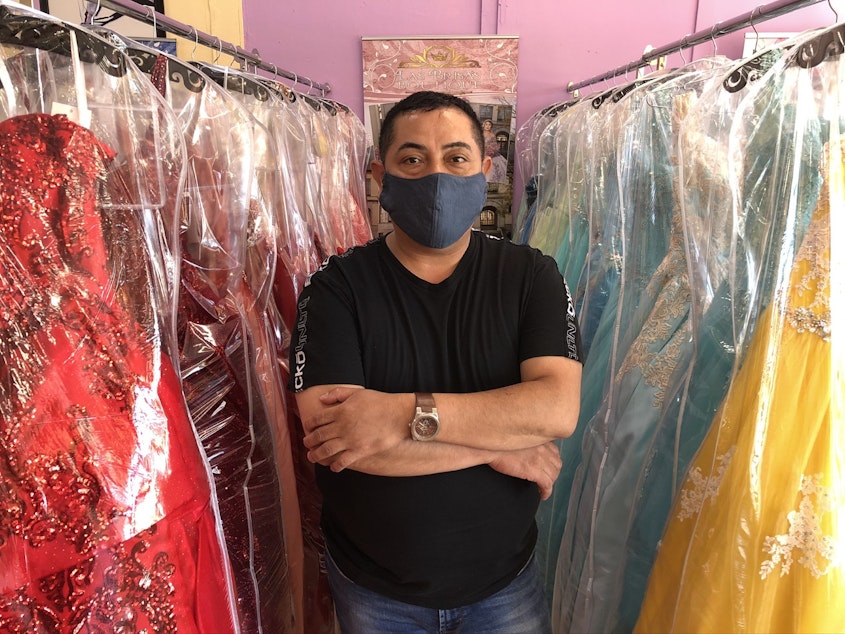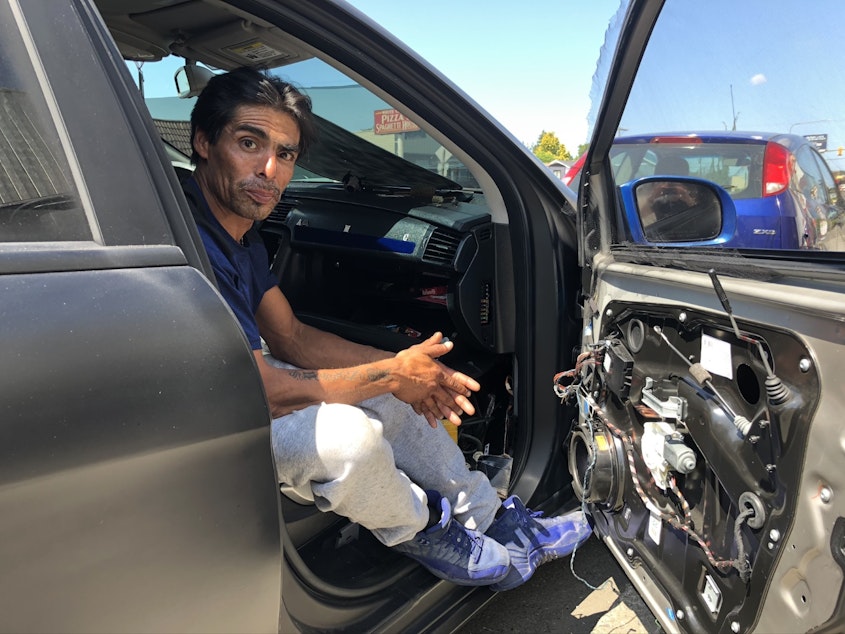In White Center, the economic safety net shows its gaps

This week, the federal government stopped giving unemployed people an extra $600 a week. That represents a crisis for some people trying to make ends meet.
But there’s another group of people who hear that story and think: "I never managed to get any of that money in the first place."
White Center is a neighborhood where many people are living on the economic margins. The pandemic has made some of them "essential workers," but others have no work and aren't getting help.
Their stories point to gaps in the economic safety net.
Marla Anderson thought she would qualify for unemployment when she was furloughed by McClendon Hardware. But her application for relief from the state was turned down.
“I never receive a good explanation as to why,” she said.
Most of the people I met in White Center didn’t even get that far.
There are broad categories of people who aren’t eligible for unemployment. For example, there are a lot of family-run businesses in White Center.
Ramiro Alvarez runs Las Brisa’s Boutique. It’s a shop full of fancy dresses for weddings, first baptisms and quinceañera celebrations. Before the pandemic, they were adding on more dressing rooms to keep up with demand.
“We were really really busy,” Alvarez said.

But now his customers are canceling their weddings, and quinceañeras are completely off the table. Many customers have stopped their payments on dresses already ordered through the store.
Now, the boutique can’t make its rent and the boutique's landlord is not happy.
“He was kind of forcing me to pay the whole thing, and I’m like, 'I can’t,'" Alvarez said. "I tried to work it out with him and make him understand the situation, but he didn't care. And he got really mad at me. And he told me, 'if you don’t pay, you've got to move out. You've got to go.'”
While some self-employed people, such as Uber drivers, can now claim unemployment benefits, Alvarez said he could not.
Alvarez applied for a loan from the city of Seattle, but he’s still waiting.
Another group of people not getting help are people who didn’t work enough hours to qualify for unemployment.

Jay Michael Tunison has been homeless and struggled with addiction in the past. But before the pandemic, things were looking up for him.
He had a great part-time job working for a caterer that served meals to tech workers.
“They were serving Indeed.com and we served 500 people two meals a day," he recalled. "We’d serve them breakfast, and then – it was like a dinner for lunch. We were really kicking it. I was learning like 10 things a day from my upper chefs and my sous chefs.”
But after the catering industry cratered, his application for unemployment relief was turned down.
Tunison said that “680 hours is what you’re supposed to have worked. I came pretty close to the mark, but I never quite hit it.”
One week, he was stuffing dates with blue cheese and wrapping them with bacon. And the next, he was trying to figure out how not to starve.
“It’s kind of ruined me, man, because I was sober for a long time," Tunison said. "And now I’m bored out of my mind. And so, I’m drinking, a bit. Being stone broke – ain’t no picnic.”

On the other side of the same block, Elias Arias Quintana is trying to make ends meet. He was just scraping by before the pandemic, detailing cars. Now, that work has dried up and he’s selling used tires that he finds.
Quintana said a lot of people don’t have the documentation to get economic help, though they may need it the most.
“Help the ones that really really need it. Not the ones that don’t need it.”
I heard these kinds of stories from person-after-person in White Center. When you add all their stories up, it’s clear the economic safety net is not working for a lot of people there. And for some, the hardship is just beginning.

